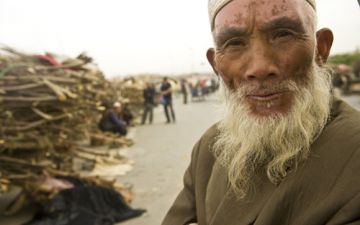Four days before the opening of the Olympic Games in Beijing, the Chinese government faced an unexpected wave of violence in the heart of the country's restive Muslim homeland. On August 4, a small group of Islamic militants staged a daring attack on a police station near Kashgar in China's Xinjiang Province and killed 16 security officers. Less than a week later, a series of bombs exploded in another part of this remote frontier province.
While a tiny band of alleged Uyghur separatists have not been able to strike Beijing, it looks like they have made good on their promise to grab the world's attention during the Olympics and expose the boiling frustration of China's large Muslim community. Since the Cultural Revolution, the Chinese government has always scrutinized the country's Muslim homeland in the Xinjiang Uyghur Autonomous Region. This area, which locals also know as East Turkistan, is populated by a Sunni Muslim ethnic minority called the Uyghurs. Uyghurs in Xinjiang are supposed to enjoy regional autonomy as guaranteed by China's constitution.
However, widespread imprisonment and systematic executions of everyday Uyghurs, religious persecution of Muslim leaders, and economic displacement by ethnic Han Chinese businessmen have all given autonomy a bad name. Fifty years ago, Uyghurs made up more than 80 percent of the province's population. Today, they comprise less than 50 percent. Urumqi is now a Han Chinese metropolis where Uyghurs are confined to small, ghetto-like neighborhoods where they have few options for employment. The military, state petroleum and natural gas companies, and government-run construction firms constitute more than 80 percent of Xinjiang's industrial assets and tend to favor ethnic Han employees and investors.
In response to China's heavy-handed rule, a tiny minority of Uyghurs has sought to ignite a separatist movement and waged low-level attacks since the 1990's. As a result, the government routinely stifles any sign of dissent by shutting down mosques and arresting and executing everyday Muslims. This week's attacks are sure to invite more crackdowns by the government.
